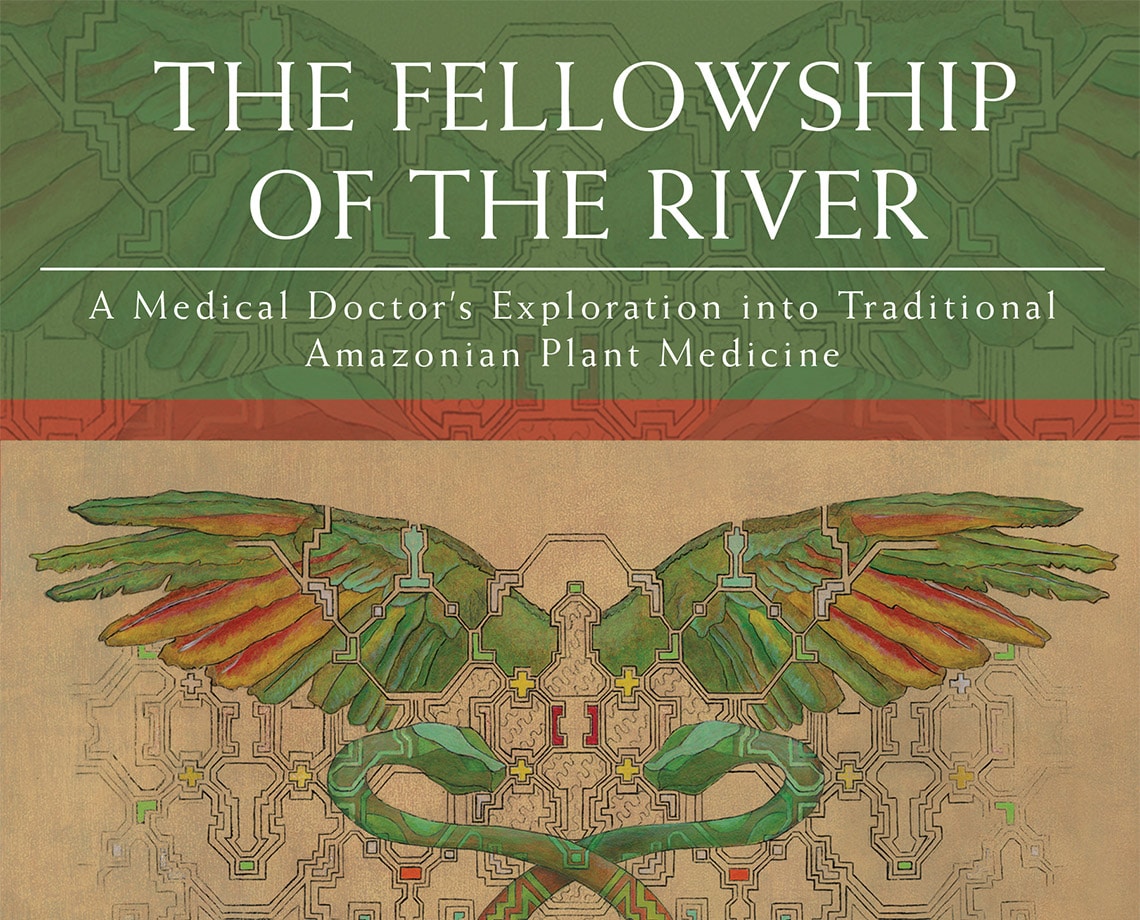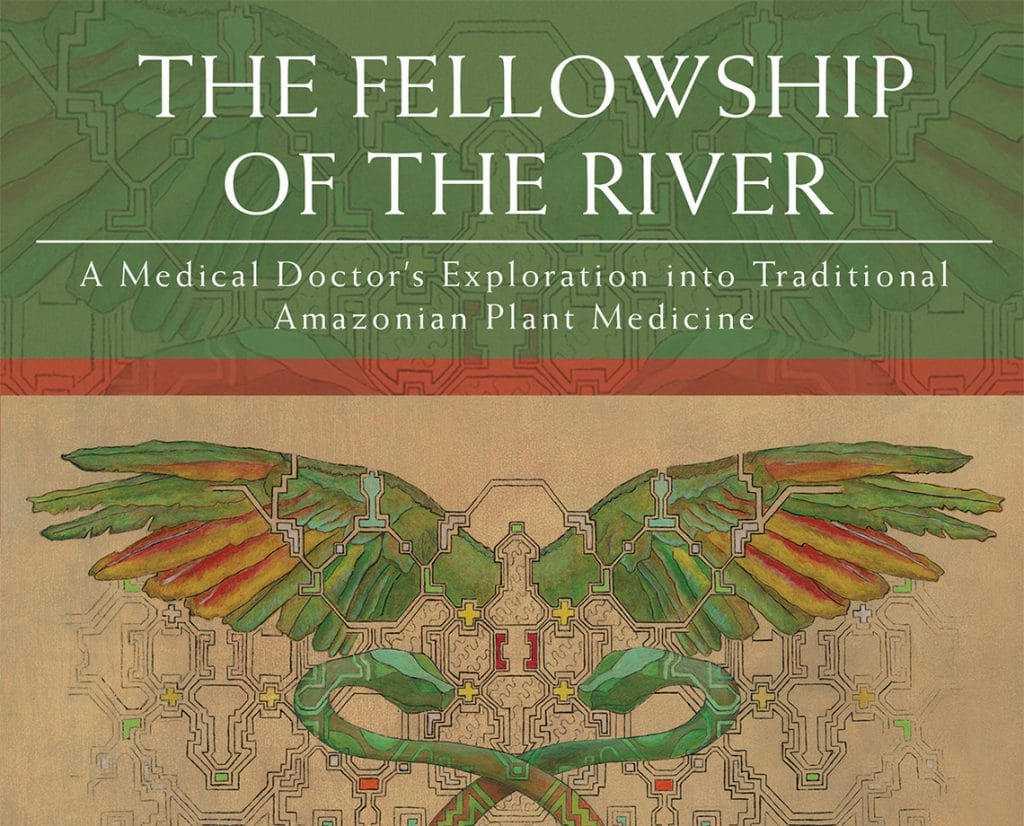What happens when a medical doctor from the United States spends years in the Amazon jungle studying shamanic healing with the Shipibo tribe? To find out, you’ll have to read The Fellowship of the River, a new book by Dr. Joe Tafur that takes readers on a journey into the rainforest and weaves together personal insights and real life stories to explore the healing power of plant medicines. Beyond discussing ayahuasca itself, Dr. Tafur draws some profound conclusions about the role that emotions and spirituality play in physical and mental health, and emphasizes the need for Western medicine to wake up and remember the roots of spiritual healing that tribal cultures have developed over millennia.
We caught up with Dr. Tafur recently and spoke with him about ayahuasca, his new book, and the challenge of bringing these insights to a Western scientific audience.
Thank you so much for speaking with us Dr. Tafur. Can you describe what inspired this book and how emotions play a part in spiritual and physical healing?
This book is a collection of stories about my experience with shamanism and the healing that I saw at the center (Nihue Rao Centro Espiritual) in the Amazon. During my time there I saw that spiritual healing can alter aspects of the physical body. Despite what your religio-political framework is, these practices have real results. Some of the main points in the book were from a powerful ayahuasca vision that I had. In the science world I’m supposed to lie and say none of that happened. The problem with that is that it isn’t true, and living a lie is not a good way to live.
Emotional health is what this book is ultimately about, and exploring the intersection between biology as understood by Western science, and emotion, which is fundamentally mysterious. Emotion is the bridge to what is described as spiritual in many cultures. That is the intersection that I use to try to bridge those worlds, and in the book I do it with real life stories.
For example, in the Amazon one of the guys I met who was dealing with PTSD had a conversation with his deceased mother during a ceremony. Sometimes people get hung up on wondering if an experience like that is “real” or not. You could go on asking that forever. But meanwhile, something very real emotionally happened through that process. He was able to let something go through a cathartic mystical experience. These spiritually oriented techniques, they access an expanded consciousness that seems to reach things in the emotionally body that materialistic approaches don’t. They embrace our feelings and open the door to the mystery that exists, the part of our life that exists beyond our mind’s comprehension. We don’t have to say “I know exactly what this is and how it works” we can just go with it. Just because someone describes something in a different way, using different language or symbols, doesn’t mean we should reject it. Spiritual health, regardless of which tradition it’s wrapped in, is reflected in emotional wellbeing. They are one in the same ultimately.
It must be challenging to talk about these subjects and their nuances in the West because we have this inherent bias towards materialism, and often dismiss things that are mysterious, spiritual, or subtle.
Yes, there’s this weird interface between the mystery and accepted knowledge. You’re allowed to talk about this, but not that. In the world of sports, for example, there’s a lot of ritualized superstition. At large sporting events thousands of people are really tuned in to the action and talking about superstitions, curses, being in the zone, the energy in the game- that’s all a normal part of the conversation. Also rock concerts and music festivals, that’s another segment of society that’s wide open in terms of what you’re allowed to experience and explore and share. Then there’s a drawing of a line, and outside of these ritualized experiences we don’t accept the immaterial or the mysterious. I would say it’s very arbitrary and fear based. Fear about what is going on in the big picture and how we really feel about what’s happening at the deepest level. If we were to open our hearts to what’s going on in our society and within ourselves, we could bring healing to so many of our mental and physical health issues.
How does spiritual or emotional trauma lead to physical problems?
It’s common knowledge today that if we carry around unresolved trauma and anger, it eats away at our body. Psychological stress affects our body’s physiological systems, and we can better articulate that now, especially when it comes to the endocrine system, immune system, and our neurology. There’s also a whole set of psychosomatic issues that can arise, like irritable bowel syndrome, reflux disease, low appetite, and physical pains. The question is, what is really going on? What is not being addressed? It’s not all in their head, it’s a complex network of systems that I call the emotional body which we can access through spiritual experiences.
What is the essence of how we can begin to heal these kinds of traumas?
Ultimately we have to open the door to the mystical. Within shamanism or Christianity or any other belief system, we have to have some kind of faith and spiritual-emotional connection. We should seek meaningful experience. When the hair is standing up on the back of your neck, when you have a strong feeling in your gut, it’s an emotional reaction to something immaterial. We struggle to have purely scientific explanation for that, so often we pretend it’s just not there, or not important. We deny and neglect it or explain it away as insignificant. Why is that a big problem? Because if we do that, we will deny and neglect a lot of our emotional underpinning which can lead to anxiety, depression, stress, and many other problems.
One of my favorite things I came across in your work was the saying “Spiritual practice is spiritual healing, and spiritual healing is spiritual practice”. Can you elaborate on that?
In the Amazon it became clear to me that maintaining your spiritual health helps to maintain your mental and physical health. Through the emotional body and the heart we regulate our neurological, psychological, hormonal, and immune systems. If you want to function optimally, you have to remove your baggage and be open to the mystical in whatever way suits you. If you disregard that part of yourself, you lose the ability to have a meaningful life with a sense of purpose, and are prone to feeling hopeless and distant. There’s an interface between the physical body and mystical states. The question is where does the rubber hit the road? Where does the spirit touch the flesh? As I convey in the book, the emotional body and energy body is the way we access these dimensions of the self.
We deeply appreciate Dr. Tafur’s important work, and thank him for sharing his insights with us.











